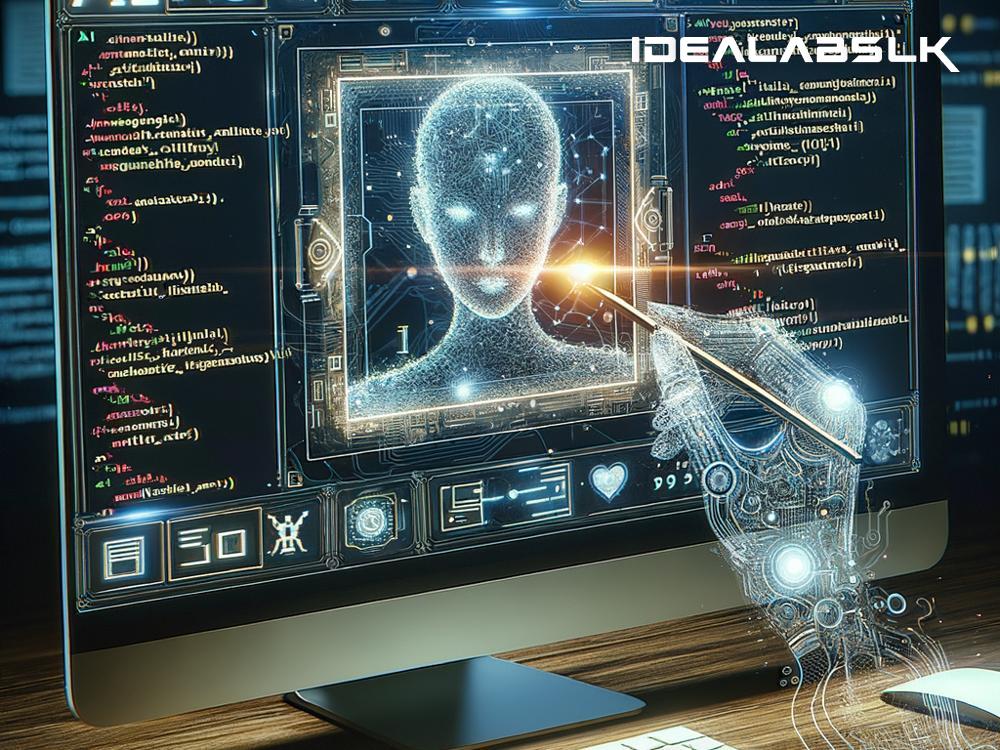The Future of Creativity: How AI and Machine Learning Are Revolutionizing Content Creation
In the ever-evolving world of technology, artificial intelligence (AI) and machine learning (ML) have become the powerful forces behind a significant transformation in how content is created, shared, and consumed. From blogs and news articles to videos, music, and even artwork, the tools and methods of creation are undergoing a massive shift, making it easier, faster, and often more cost-effective to generate new content. But what exactly does this mean, and how are these technological advancements disrupting the traditional content creation landscape?
AI and Machine Learning: A Quick Overview
Before diving in, let's demystify these terms a bit. In simple terms, AI is a branch of computer science focused on creating systems capable of performing tasks that usually require human intelligence. These tasks can include recognizing speech, making decisions, translating languages, and more. Machine learning, a subset of AI, involves the development of algorithms that allow computers to learn and adapt through experience without being explicitly programmed for each task.
Impact on Content Creation
The introduction of AI and ML into the content creation sphere is reshaping the industry in several profound ways:
1. Automating Routine Tasks
One of the most straightforward impacts of AI in content creation is the automation of repetitive and time-consuming tasks. For instance, AI can automatically transcribe audio recordings, generate captions for videos, or even suggest content ideas based on trending topics and predictive analytics. This automation allows creators to focus more on the creative aspects of content production, such as storytelling and audience engagement.
2. Personalizing Content at Scale
AI and ML excel at analyzing large datasets, making them ideal for personalizing content for individual users. Content platforms like Netflix and Spotify use these technologies to recommend movies, shows, or songs based on users' previous viewing or listening habits. This personalized approach ensures that users remain engaged and satisfied with the content they receive, significantly enhancing the user experience.
3. Enhancing Creativity with AI-Powered Tools
Perhaps the most exciting aspect of AI's impact on content creation is the emergence of AI-powered tools that enhance human creativity. For example, there are AI programs that can help write articles, compose music, or create art. These tools don't replace human creators but rather work alongside them, offering suggestions, generating ideas, or even automating parts of the creative process, thereby speeding up production and enabling creators to explore new and innovative concepts.
4. Generating Completely New Content
AI can now generate original content based on certain parameters or prompts. This capability is particularly evident in the domain of text generation, where AI models can produce articles, stories, or even poetry. Similarly, AI can create realistic images or videos from scratch. While the quality and genuineness of AI-generated content can vary, these tools open up new possibilities for content creation, especially for businesses looking to generate content quickly and efficiently.
Challenges and Considerations
Despite the exciting possibilities, the integration of AI and ML into content creation also presents several challenges. Issues related to copyright, authenticity, and the potential loss of jobs in certain sectors need to be carefully considered. Additionally, the reliance on AI-generated content raises concerns about the loss of human touch and creativity in certain instances.
Moreover, ensuring that AI-generated content remains ethical and free from biases embedded in the data it's trained on is an ongoing challenge. As these technologies continue to evolve, striking a balance between leveraging AI's capabilities and maintaining human oversight will be crucial.
The Road Ahead
As we look to the future, it's clear that AI and machine learning will continue to play a pivotal role in content creation. These technologies promise to unlock new creative possibilities, streamline production processes, and personalize user experiences in unprecedented ways. However, as we navigate this changing landscape, it's essential to remember that technology should serve to enhance human creativity, not replace it. By thoughtfully integrating AI and ML into content creation efforts, creators can harness these tools to innovate, inspire, and connect with audiences around the world in more meaningful ways.
The disruption brought about by AI and machine learning in content creation is just the beginning. As technology advances, the potential for these tools to shape the future of creativity and storytelling is limitless. Yet, amidst these exciting developments, the human element - the unique perspectives, emotions, and experiences that creators bring to their work - remains irreplaceable. In this new era of content creation, balancing technological innovation with the intrinsic value of human creativity will be the key to crafting engaging, authentic, and impactful content.

